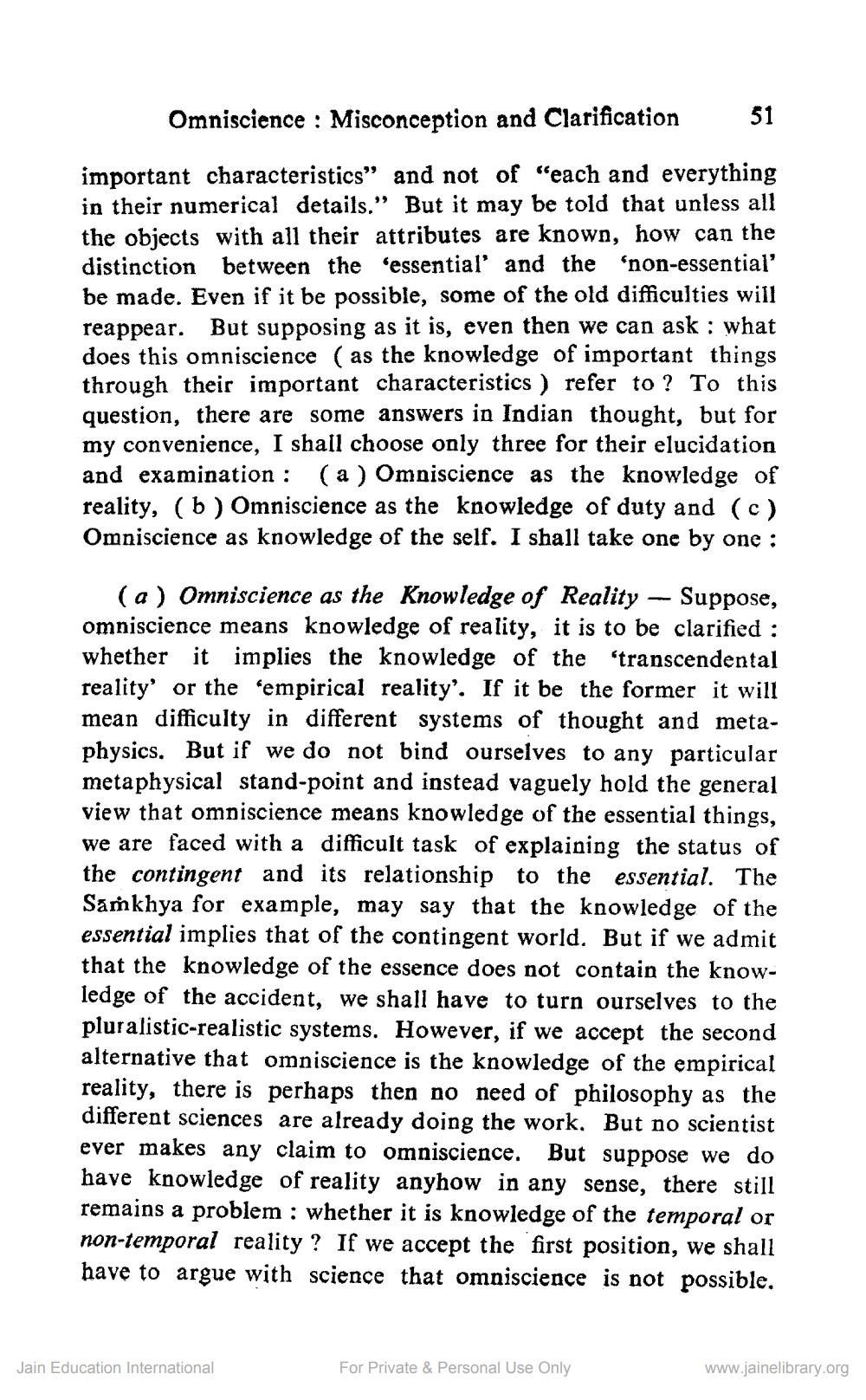________________
Omniscience: Misconception and Clarification
important characteristics" and not of "each and everything in their numerical details." But it may be told that unless all the objects with all their attributes are known, how can the distinction between the 'essential' and the 'non-essential' be made. Even if it be possible, some of the old difficulties will reappear. But supposing as it is, even then we can ask what does this omniscience (as the knowledge of important things through their important characteristics) refer to ? To this question, there are some answers in Indian thought, but for my convenience, I shall choose only three for their elucidation and examination : (a) Omniscience as the knowledge of reality, (b) Omniscience as the knowledge of duty and (c) Omniscience as knowledge of the self. I shall take one by one :
(a) Omniscience as the Knowledge of Reality- Suppose, omniscience means knowledge of reality, it is to be clarified : whether it implies the knowledge of the 'transcendental reality' or the 'empirical reality'. If it be the former it will mean difficulty in different systems of thought and metaphysics. But if we do not bind ourselves to any particular metaphysical stand-point and instead vaguely hold the general view that omniscience means knowledge of the essential things, we are faced with a difficult task of explaining the status of the contingent and its relationship to the essential. The Samkhya for example, may say that the knowledge of the essential implies that of the contingent world. But if we admit that the knowledge of the essence does not contain the knowledge of the accident, we shall have to turn ourselves to the pluralistic-realistic systems. However, if we accept the second alternative that omniscience is the knowledge of the empirical reality, there is perhaps then no need of philosophy as the different sciences are already doing the work. But no scientist ever makes any claim to omniscience. But suppose we do have knowledge of reality anyhow in any sense, there still remains a problem: whether it is knowledge of the temporal or non-temporal reality? If we accept the first position, we shall have to argue with science that omniscience is not possible.
Jain Education International
51
For Private & Personal Use Only
-
www.jainelibrary.org




